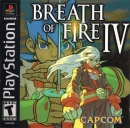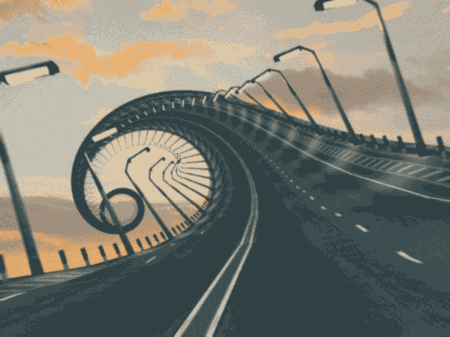Nintendo Looks Set to End Two-Punch Strategy
For more than two decades, Nintendo Co.’s twin product lines were the envy of its rivals: a home console and a handheld gaming device. But signs are emerging its new hybrid Switch may upend all of that.
Starting with 1989’s Game Boy, the Kyoto-based company has effectively doubled its market audience by getting gamers to buy one device for home and another for outside. That also allowed Nintendo to market consoles like the Wii as the higher-end product, with game titles costing more and averaging nine per household, versus five for handheld systems.
While Nintendo hasn’t said it’s abandoning the two-gadget strategy, the signs are there. The home and handheld development teams were merged in 2013, with the company beginning work on the Switch the following year. Last quarter, Nintendo stopped reporting separate revenue for handheld and home systems. Then last month, it said a new Pokemon title for the Switch is in development, the first time a main game in the series will debut outside of a dedicated handheld system such as the Game Boy or 3DS.
“The 3DS will hang around for a few years because of the big install base, but ultimately the goal is for the Switch to become their one and only platform for hardware,” said David Gibson, a Tokyo-based analyst at Macquarie. “It’s part of the biggest evolution to the company in three decades.”

A Nintendo spokesman acknowledged the change to its revenue reporting was a result of the Switch but declined to elaborate.
Last month, at Nintendo’s shareholder meeting, President Tatsumi Kimishima was vague on the topic, suggesting that handheld devices would still be around. “We understand that Nintendo Switch is diversifying the way people play games,” he said. “We hope to provide as many different ways to play as possible for both our home console and handheld systems.”
The prospect of Nintendo relying on a single product line has triggered some concern that revenue will take a hit in the near term, as consumers who would have bought two devices end up with only one. The Switch, which debuted in March, gives gamers the option to play in their living room or on the go as it’s essentially a tablet with detachable controllers that can be connected to a TV. The gamble is that any lost sales could be made up by selling more games for smartphones, a market that Nintendo was late to embrace.
“There are those who say because the Switch is a hybrid console, it can do more volume,” said Jay Defibaugh, an analyst at CLSA in Tokyo. “Wii and DS probably double-sold into the same households, which suggests the Switch can’t do those kinds of numbers.”
So far, investors have shrugged off such concerns. Nintendo shares are up 65 percent since the $300 Switch hit store shelves, pushing the company’s market value up to 5.3 trillion yen ($47 billion). Nintendo sold 2.7 million Switch devices in the first month, topping its own forecast for 2 million. The company expects another 10 million to be shipped this year, although analysts consider that too conservative and are projecting 13 million in sales, according estimates compiled by Bloomberg.
Seth Fischer, whose hedge fund Oasis Management Co. has invested in Nintendo since 2013, said the Switch will bring all of its best software and hardware into a single platform, giving gamers more reasons to buy the hybrid. Nintendo’s broader push into eSports and multiplayer games will also encourage households to buy multiple devices, similar to how every member of a family might own a smartphone.
“I’m actually happy for it to be their hybrid hardware device,” Fischer said.
Nintendo has also stepped up the pace of new game rollouts for the Switch, compared with previous hardware. As a result, analysts tracking Nintendo say the company will have its strongest software lineup in at least a decade, with titles such as the upcoming Pokemon role-playing game, Super Mario Odyssey and Metroid Prime 4. They recently boosted their prediction for Switch software sales next fiscal year to 112 million from 74 million in May. In turn, that’s pushed up the annual operating income estimate for the period to 231 billion yen, the highest since fiscal 2010 when the Wii dominated.
Legend of Zelda: Breath of the Wild, the debut title for the Switch, has already proven to be a success with more than 2.76 million copies sold in the first month, helping to drive hardware sales.
One area to watch will be Nintendo’s fledgling smartphone business. Oasis’s Fischer says that will need to play a bigger role to make up for the loss of a second hardware platform. The company has so-far released two smartphone games -- Super Mario Runand Fire Emblem Heroes -- and delayed a third. It originally promised five titles by March 2017.
While Nintendo has teamed up with DeNA Co., Fischer said Nintendo may have to recruit other partners. “I don’t know if they’ve done the best job,” he said, referring to DeNA. “I’m not sure they’re the best guys in this.”
In January, Kimishima wouldn’t rule out partnering with more companies. A DeNA spokesman declined to comment, pointing to President Isao Moriyasu’s statement in May that his company was growing as a result of its partnership with Nintendo.
DeNA declined 3.6 percent as of 11:16 a.m. in Tokyo, heading for its biggest loss in two months. Nintendo shares slipped 0.3 percent.
Nintendo is just adjusting to the needs of gamers, who have shown a strong appetite for playing wherever they go, according to Gibson. Giving them a platform that does this makes sense, and the strong response to the console so far is indication Nintendo was probably right, he said.
“If it resonates with the consumer, it helps to drive sales and impacts profitability,” Gibson said. “It’s going to be a different business.”





















































